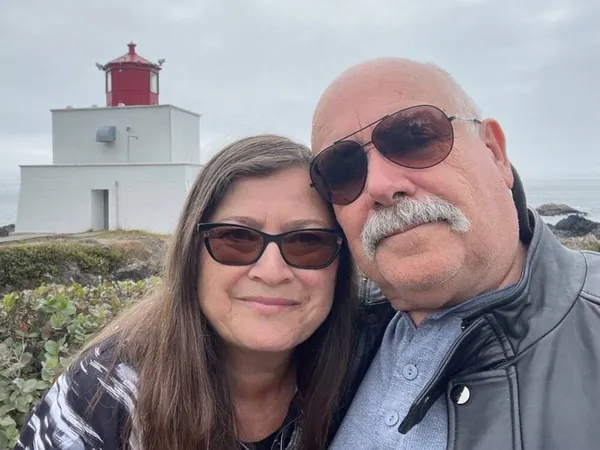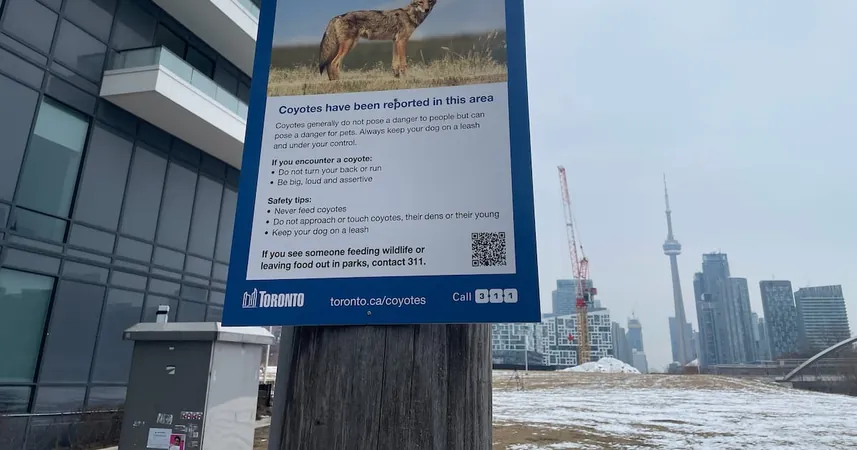
Canadian Snowbirds Find Refuge Back Home Amidst Rising Tensions in the U.S.
2025-03-18
Author: Olivia
As the political landscape in the United States continues to shift, many Canadian snowbirds are feeling a wave of relief upon returning to their homeland. Martin Buck and his wife, Irene, crossed the Canadian border on January 20, coincidentally the same day Donald Trump was inaugurated as the 47th president of the U.S. Their homecoming brought them unprecedented joy after years spent in Arizona.
“I remember the customs officer greeted us with a simple ‘How are you?’” Martin recounted. “I replied that we were really glad to be back in Canada, and he remarked, ‘Funny — everybody’s been saying that today.’” This sentiment was evident among many returning Canadians, reflecting a widespread relief felt by those who made the trek back home.
The couple, residents of Mill Bay on Vancouver Island, has been spending their winters in Arizona since 2008 and purchased a second home there in 2010. However, this year the Buck family, along with countless others, chose to return to Canada early amid growing concerns regarding U.S. policies and political climate. Many Canadians have begun selling their properties in the States or avoiding travel altogether during Trump’s presidency.
Since taking office, Trump has made derogatory remarks about Canada, threatened annexation, and even suggested that Canada could be a “great 51st state.” His administration has also enacted an executive order requiring snowbirds to register before traveling to the U.S. Visitors planning to stay 30 days or longer must now notify the U.S. government about their plans.
Rudy Buttignol, president of the Canadian Association of Retired Persons (CARP), expressed concern over these travel restrictions, viewing them as additional barriers for Canadian travelers. “People are annoyed, irritated, and shocked by this. It’s like a family member who’s suddenly gone crazy,” Buttignol stated. He emphasized that despite the actions of the current administration, the frustration is not directed at the American people but rather at the political system.
With over a million Canadian snowbirds spending billions annually in the United States, many integrate deeply into American communities, establishing parallel lives during their time down south. Yet, in light of recent political developments, many have altered their travel plans, cancelled flights, and even sold their U.S. properties to return to Canada. Martin Buck shared that their decision was accelerated when they sold their Arizona resort property just five days before crossing the border back into fellow Canadian territory.
This mass return is not simply a reaction to political turmoil; it signifies a deeper emotional connection to Canada, where the sense of safety and comfort appears to outweigh the allure of warmer climates in the U.S. As Trump’s presidency unfolds, Canadian snowbirds will continue to reevaluate their place in the landscape of North American travel and choose whether to brave the uncertainties of the U.S. or relish the peace of returning home.









 Brasil (PT)
Brasil (PT)
 Canada (EN)
Canada (EN)
 Chile (ES)
Chile (ES)
 Česko (CS)
Česko (CS)
 대한민국 (KO)
대한민국 (KO)
 España (ES)
España (ES)
 France (FR)
France (FR)
 Hong Kong (EN)
Hong Kong (EN)
 Italia (IT)
Italia (IT)
 日本 (JA)
日本 (JA)
 Magyarország (HU)
Magyarország (HU)
 Norge (NO)
Norge (NO)
 Polska (PL)
Polska (PL)
 Schweiz (DE)
Schweiz (DE)
 Singapore (EN)
Singapore (EN)
 Sverige (SV)
Sverige (SV)
 Suomi (FI)
Suomi (FI)
 Türkiye (TR)
Türkiye (TR)
 الإمارات العربية المتحدة (AR)
الإمارات العربية المتحدة (AR)